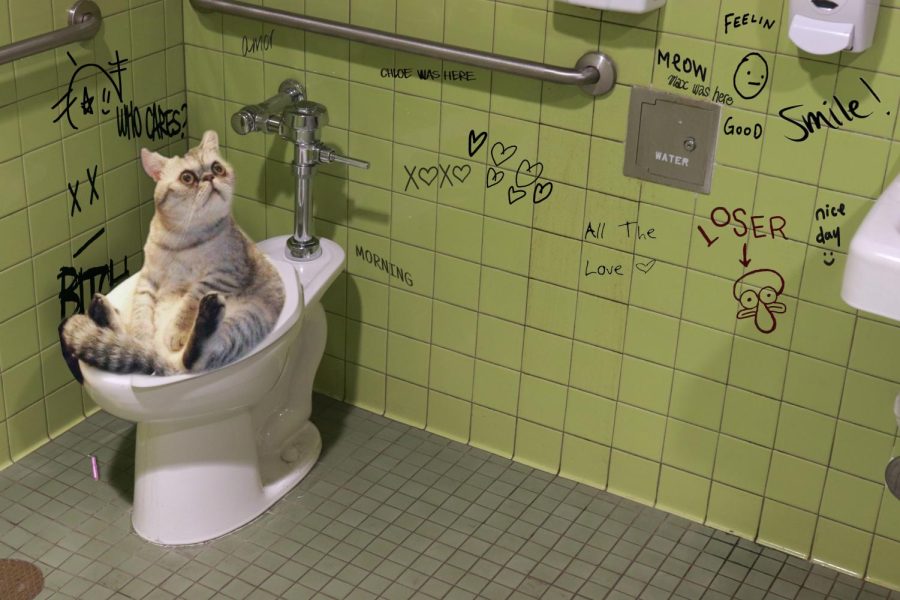Dangers of Flushing Cat Poop Down Your Toilet - Avoid Potential Issues
Dangers of Flushing Cat Poop Down Your Toilet - Avoid Potential Issues
Blog Article
Do you find yourself interested in content concerning Can You Flush Cat Poo or Litter Down the Toilet??

Intro
As feline owners, it's essential to bear in mind exactly how we get rid of our feline good friends' waste. While it may appear practical to flush pet cat poop down the bathroom, this method can have harmful effects for both the atmosphere and human health.
Alternatives to Flushing
Fortunately, there are more secure and a lot more accountable means to throw away feline poop. Consider the adhering to alternatives:
1. Scoop and Dispose in Trash
One of the most typical method of disposing of pet cat poop is to scoop it into an eco-friendly bag and toss it in the garbage. Make sure to use a committed trash scoop and dispose of the waste immediately.
2. Use Biodegradable Litter
Select biodegradable pet cat trash made from products such as corn or wheat. These litters are eco-friendly and can be safely taken care of in the garbage.
3. Bury in the Yard
If you have a lawn, consider hiding cat waste in an assigned location away from veggie gardens and water sources. Make certain to dig deep enough to prevent contamination of groundwater.
4. Install a Pet Waste Disposal System
Buy a family pet waste disposal system especially created for cat waste. These systems utilize enzymes to break down the waste, lowering odor and environmental effect.
Wellness Risks
Along with ecological concerns, flushing feline waste can additionally posture health risks to people. Feline feces might have Toxoplasma gondii, a parasite that can trigger toxoplasmosis-- a possibly extreme illness, particularly for expecting ladies and people with damaged body immune systems.
Ecological Impact
Purging cat poop introduces harmful pathogens and parasites into the supply of water, presenting a substantial threat to marine ecological communities. These contaminants can negatively impact aquatic life and compromise water quality.
Conclusion
Liable pet ownership prolongs past providing food and sanctuary-- it additionally involves appropriate waste monitoring. By avoiding purging pet cat poop down the toilet and selecting different disposal methods, we can reduce our ecological impact and shield human health.
Why Can’t I Flush Cat Poop?
It Spreads a Parasite
Cats are frequently infected with a parasite called toxoplasma gondii. The parasite causes an infection called toxoplasmosis. It is usually harmless to cats. The parasite only uses cat poop as a host for its eggs. Otherwise, the cat’s immune system usually keeps the infection at low enough levels to maintain its own health. But it does not stop the develop of eggs. These eggs are tiny and surprisingly tough. They may survive for a year before they begin to grow. But that’s the problem.
Our wastewater system is not designed to deal with toxoplasmosis eggs. Instead, most eggs will flush from your toilet into sewers and wastewater management plants. After the sewage is treated for many other harmful things in it, it is typically released into local rivers, lakes, or oceans. Here, the toxoplasmosis eggs can find new hosts, including starfish, crabs, otters, and many other wildlife. For many, this is a significant risk to their health. Toxoplasmosis can also end up infecting water sources that are important for agriculture, which means our deer, pigs, and sheep can get infected too.
Is There Risk to Humans?
There can be a risk to human life from flushing cat poop down the toilet. If you do so, the parasites from your cat’s poop can end up in shellfish, game animals, or livestock. If this meat is then served raw or undercooked, the people who eat it can get sick.
In fact, according to the CDC, 40 million people in the United States are infected with toxoplasma gondii. They get it from exposure to infected seafood, or from some kind of cat poop contamination, like drinking from a stream that is contaminated or touching anything that has come into contact with cat poop. That includes just cleaning a cat litter box.
Most people who get infected with these parasites will not develop any symptoms. However, for pregnant women or for those with compromised immune systems, the parasite can cause severe health problems.
How to Handle Cat Poop
The best way to handle cat poop is actually to clean the box more often. The eggs that the parasite sheds will not become active until one to five days after the cat poops. That means that if you clean daily, you’re much less likely to come into direct contact with infectious eggs.
That said, always dispose of cat poop in the garbage and not down the toilet. Wash your hands before and after you clean the litter box, and bring the bag of poop right outside to your garbage bins.
https://trenchlesssolutionsusa.com/why-cant-i-flush-cat-poop/

Do you enjoy reading up on How to Dispose of Cat Poop and Litter Without Plastic Bags? Make a short review down below. We would be interested to know your ideas about this post. We are looking forward that you visit us again in the future. Don't hesitate to take a moment to distribute this article if you enjoyed reading it. Many thanks for your time spent reading it.
Visit Our Site Report this page